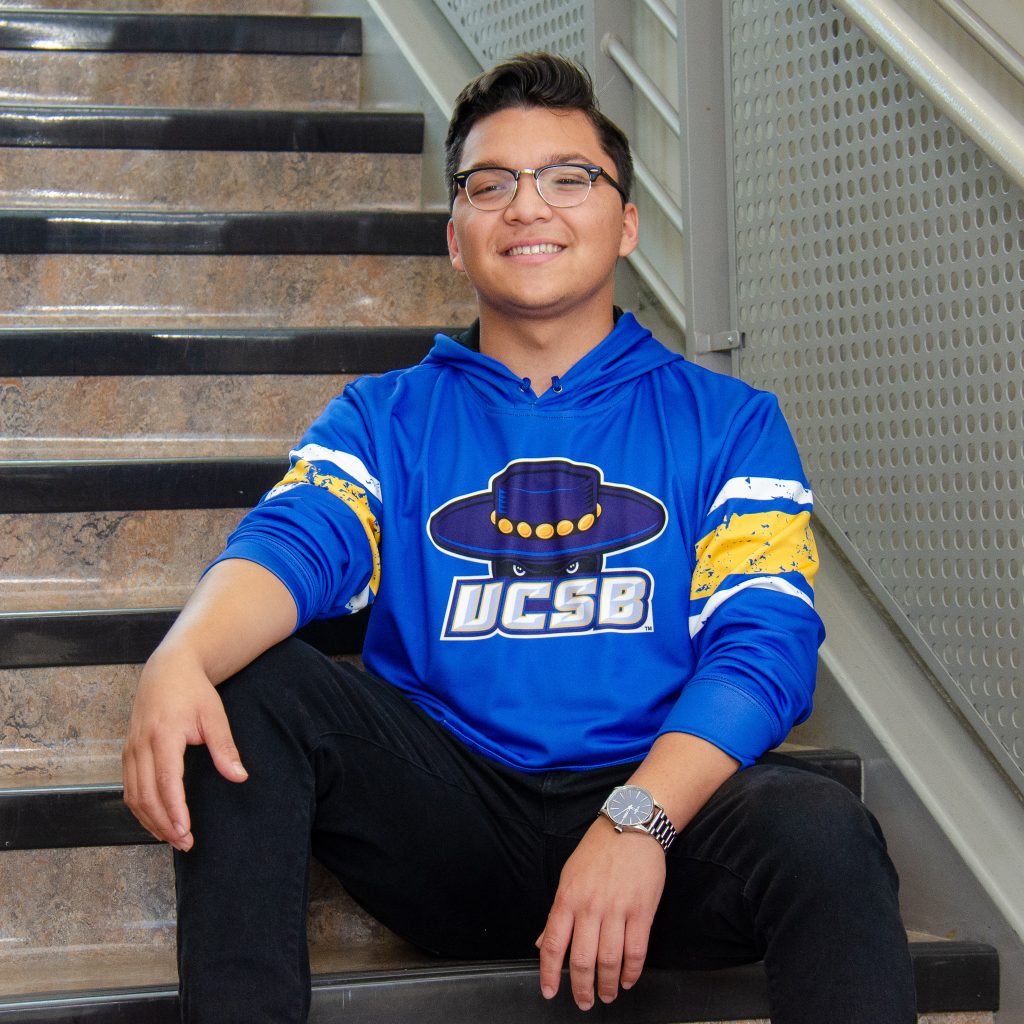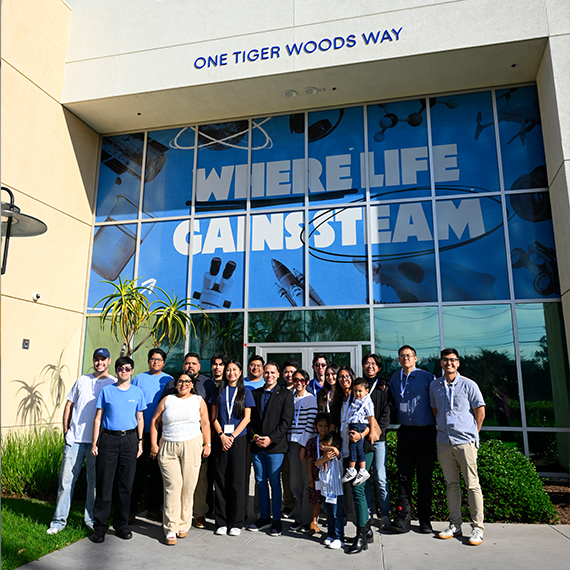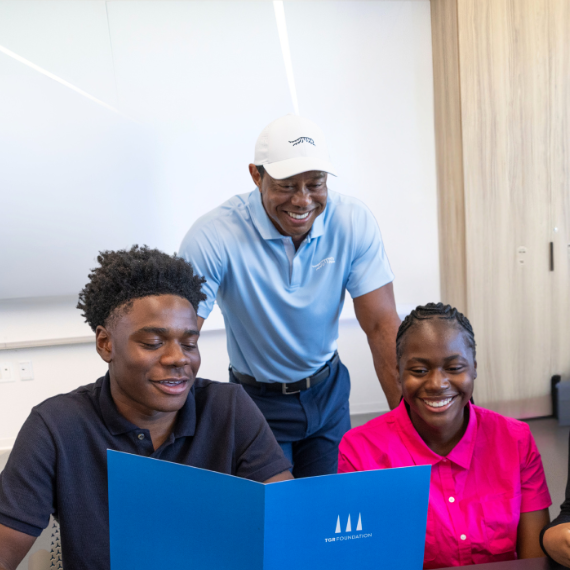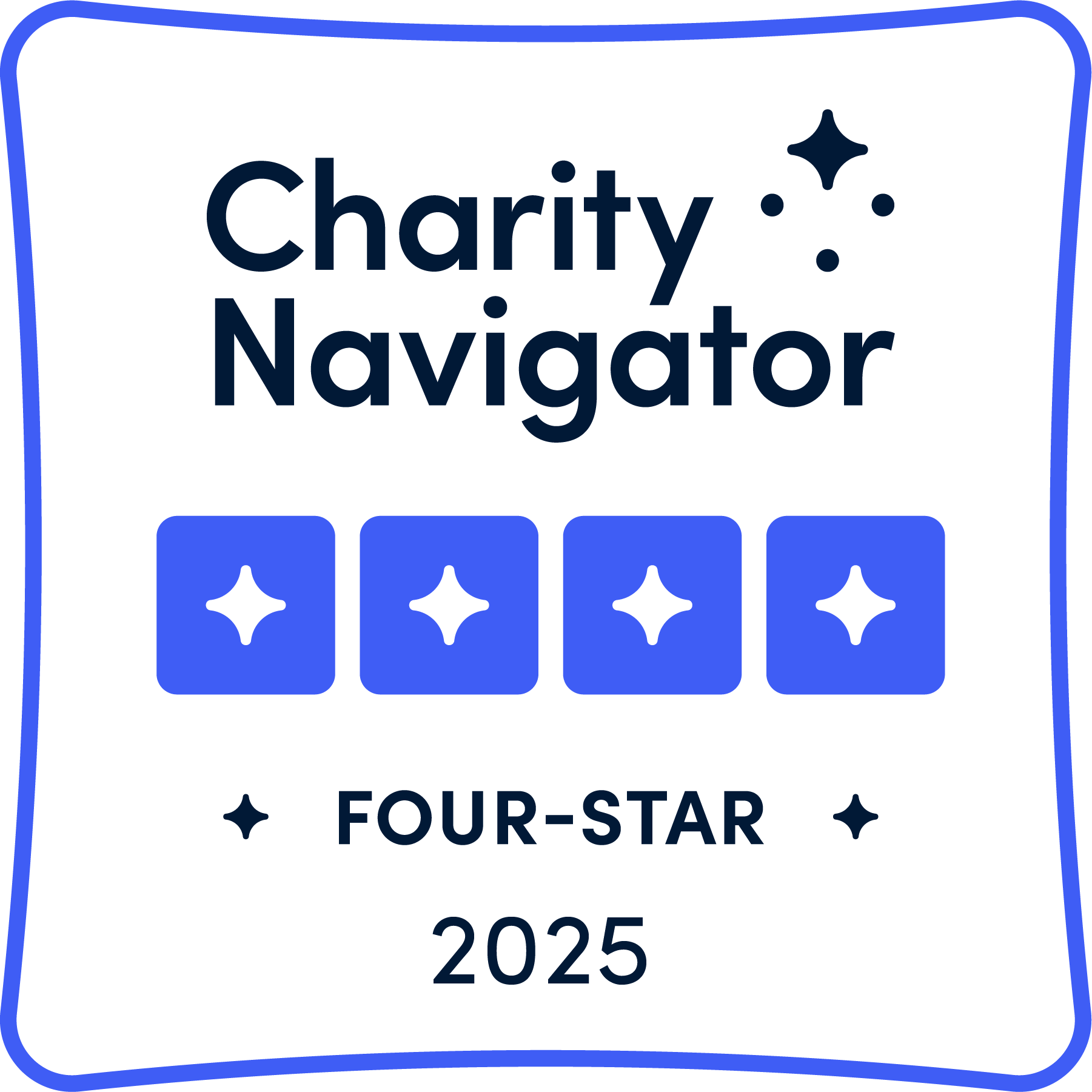It was March 11th when my family and I were sitting in the Orlando airport waiting to catch a flight back home from Disney World where we had just spent the past five days for spring break. When we left home on March 5 there were 159 cases of COVID-19 in the U.S. I watched during the week as it spiked to 1,110 cases. It was at that moment when the anxiety over the pandemic set in.
Once we got home and found out school was converting to homeschooling that’s when everything changed. Our normal workday turned upside down and our son, who thrives on a schedule and structure, was rebelling. It created tension, anxiety and second-guessing.
As my world was changing it made me think about everyone else I know and what they were going through– in particular my Earl Woods Scholar mentee, Douglass Torres, was top of mind.

Doug and I have a great relationship. We are both musicians, love for great food and have strong family bonds. I had spoken to him at the beginning of March and he was going to be finishing his finals at the University of California, Santa Barbara where he is a 2nd-year student. Then he would be heading home for a break before starting a new quarter at the end of the month.
I had been texting him prior to see if they were canceling any of his classes yet due to COVID-19. Towards the latter part of March, both Doug and I found out what the “new normal” was going to be like. Doug usually has a pretty relaxed personality. I knew if I was getting hypersensitive to my environment, especially when I went to the gas station or grocery shopping, he had to be feeling something similar.
At this point, I thought it necessary to become more friend, less mentor and set some guidelines for myself with our relationship.
- Reach out through text and calls more frequently during the pandemic. I’m not sure we can over-communicate during this period. Let your mentee know you are thinking about them and ask how they are navigating through these different times.
- Try to make calls less structured than normal and more about how they are balancing online studies, home life and what the challenges are. More importantly, talk about some “FUN” things they are doing with their family.
- Anxiety can be something they are feeling but not really know it or understand it. I think it’s important to let them know us mentors are experiencing this too and it’s normal. It’s normal to have feelings of worry or fear when you go to the grocery store and people are wearing a mask and gloves. It’s also normal when you are social distancing and you’re wondering if your standing six feet apart or not.
- Once we get through this, reflect with your mentee on what this time was like and how you mutually made it through successfully. We are stronger than we think and this will give us more confidence in the long run.
Doug is self-motivated and loves life. If he’s not working hard at school as an Environmental Studies and Music Studies double major, he’s traveling from city to city in California performing gigs with his mariachi band. I’m confident that we will both get through this. I want us both to look back on this terrible pandemic and remember how we were able to adapt, feel compassion and see how the choices we made were to keep us safe and healthy.
Redefining what it means to be a champion.





